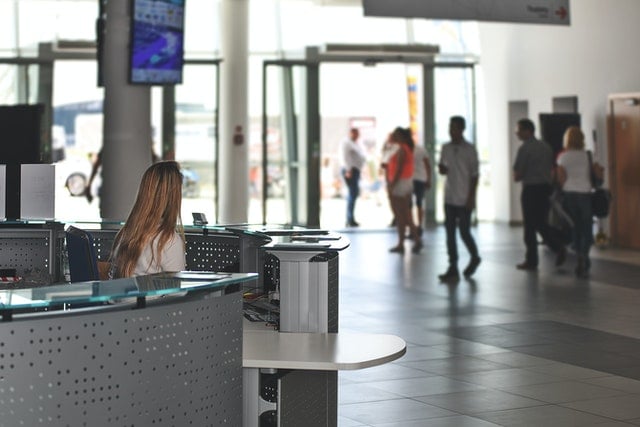How to Behave at a Job Interview in Japan
Table of Contents
In Japanese culture, there is a lot of emphasis on etiquette and politeness in all spheres of life. Things that you may consider completely normal, like speaking loudly in public, making some noise when eating, or having an overly assertive way of speaking, are seen as rude and disrespectful in Japan, where people are taught to be humble and reserved. Given the emphasis that Japanese people place on manners, attending a job interview in Japan may seem like going through a minefield.
In this article, we will teach you how to navigate the intricacies of Japanese manners in a job interview by following 5 easy steps to help you find the job of your dreams.
Be Punctual
It may seem like a basic tip, but believe me: This is probably the most important rule of thumb for an interview in Japan.
Saying that tardiness is seen as unprofessional in Japan is a huge understatement. In fact, it wouldn’t be exaggerated to say that it is strictly prohibited. Being late for an interview in Japan, especially without a delay notice and a proper apology, is seen as a lack of respect for the person who is waiting for you.
So, should you be inevitably late as a result of an emergency, make sure you call the recruiter’s secretary and let them know you’re on your way.
Shows Impeccable Manners in the Reception Room
Japanese people are very observant, which means that everything you do from the moment you arrive at the venue is relevant. In fact, the recruiter may ask the receptionist and nearby employees what they thought of you as soon as the interview is over.

If you want to impress both your potential coworkers and employers from the second you step into the building, follow these simple tips:
- Remove your coat at the entrance hall.
- Don’t use your phone inside the building and make sure all your devices are on silent mode.
- At the reception desk, say your name clearly and communicate the reason for your visit and the name of the person who is in charge of the interview.
- If the reception desk is empty, you can politely approach a nearby employee and ask them where the office of your interviewer is.
- Make sure all your documents are well-organized and ready for submission.
- Throughout the previous steps, mind your body language and your posture.
This may sound a bit scary, but bear in mind that you might be observed and evaluated by your confidence and manners at the moment of your arrival, so act as if your job interview has already started, because that well may be the case.
How to Behave in the Waiting Room
Waiting rooms can be nerve-wracking, especially if what you are waiting for is your first job interview in Japan. However, it’s very important that you remain (or at least, look) calm and relaxed. If you are agitated and can feel your heart beating, try taking deep breaths and waiting a few seconds before you slowly exhale the air through your mouth.
If you can tell that there is no one inside the room, softly knock on the door three times to let the interviewer know you are there. Yes, it is important that you do it three times. In Japan, people use two knocks to check that the toilet is free, and three for more formal affairs.
Also, make sure you enter the room only after the person inside has asked you to come in. Usually, they’ll do this by saying “Douzo” (Please).
Do’s and Don’ts of a Job Interview in Japan
Now is the moment of the truth, the one that you’ve been dreaming about and dreading in equal measure: your first job interview in Japan. But don’t worry. We have your back.
Here are the top five things you should do during the interview.
- Open the door slowly and enter the room with a professional smile on your face.
- Sit down close to the doorway. In the context of an interview in Japan, hierarchy is paramount. As a candidate aspiring to get a job in the company, you are expected to occupy a “low seat” which is the one closest to the entrance.
- Answer the interviewer’s questions in a clear voice. Your facial expression should be attentive and friendly as opposed to cheerful or excited.
- Watch your back posture and keep your hands on your lap.
- Bow again before you leave.
Now that you know what you can do to make a good impression on your first interview in Japan, let’s take a look at the kind of behavior you should avoid.
- Don’t go straight to your seat as soon as you enter the room. Close the door gently trying to make as little noise as possible.
- Don’t forget to greet and bow and say “O ai dekite ureshīdesu” (It’s nice to meet you) before sitting down. If you are a man, put your hands on the sides while you bow. If you are a woman, keep them in the front.
- Don’t sit down before you’re invited to do so.
- Don’t look down or turn your eyes away from your interviewer when you’re answering a question. Even if you’re nervous, try not to lose eye contact during interactions.
Questions You Can Expect in a Japanese Job Interview
So far, we have covered the behavioral aspect of attending a job interview; i.e., we’ve told you what you are expected to do before and during a job interview. But what about the language involved in a job interview? What kind of questions are typically asked in a job interview in Japan?

Here are a few that you should be ready to answer.
- <listyle=”margin:15px”>Naze kono shigoto ni ōbo shita nodesu ka? (Why did you apply for this job?)
- Anata no keiken wa kono tachiba todo no yō ni itchi shimasu ka? (How does your experience match this position?)
- Anata no omona chōsho to tansho wa nanidesu ka? (What are your main strengths and weaknesses?)
- Anata no nihongo wa dore kurai jōzudesu ka? (How good is your Japanese?)
- Kono shigoto de nani o tassei shitaidesu ka? (What would you like to achieve in this job?)
- Nihon no kankyō de hataraku koto ga dekiru to kakushin shite imasu ka? (Are you sure you will be able to work in a Japanese environment?)
- Kon’nan’na jōkyō ni dono yō ni taisho shimasu ka? (How do you deal with difficult situations?)
Of course, the answers to the questions in previous sections will depend on each applicant. For this reason, we strongly encourage you to prepare them with the help of a Japanese teacher.
By taking a personalized lesson with a native tutor, you will be able to:
- Take all the time you need to prepare for your interview, without worrying about exams or wasting time on irrelevant content.
- Get expert feedback on your pronunciation and speaking skills.
- Get advice on how to conduct yourself in a Japanese business setting.
What are you waiting for? With our tailored, one-to-one courses, you can obtain all these benefits and learn at your own pace in your preferred setting. What’s more, we offer both online and in-person courses so that every student can choose their favorite modality.
Would you like to take a free trial lesson online? Send us a message now and we’ll arrange it for you in no time!


